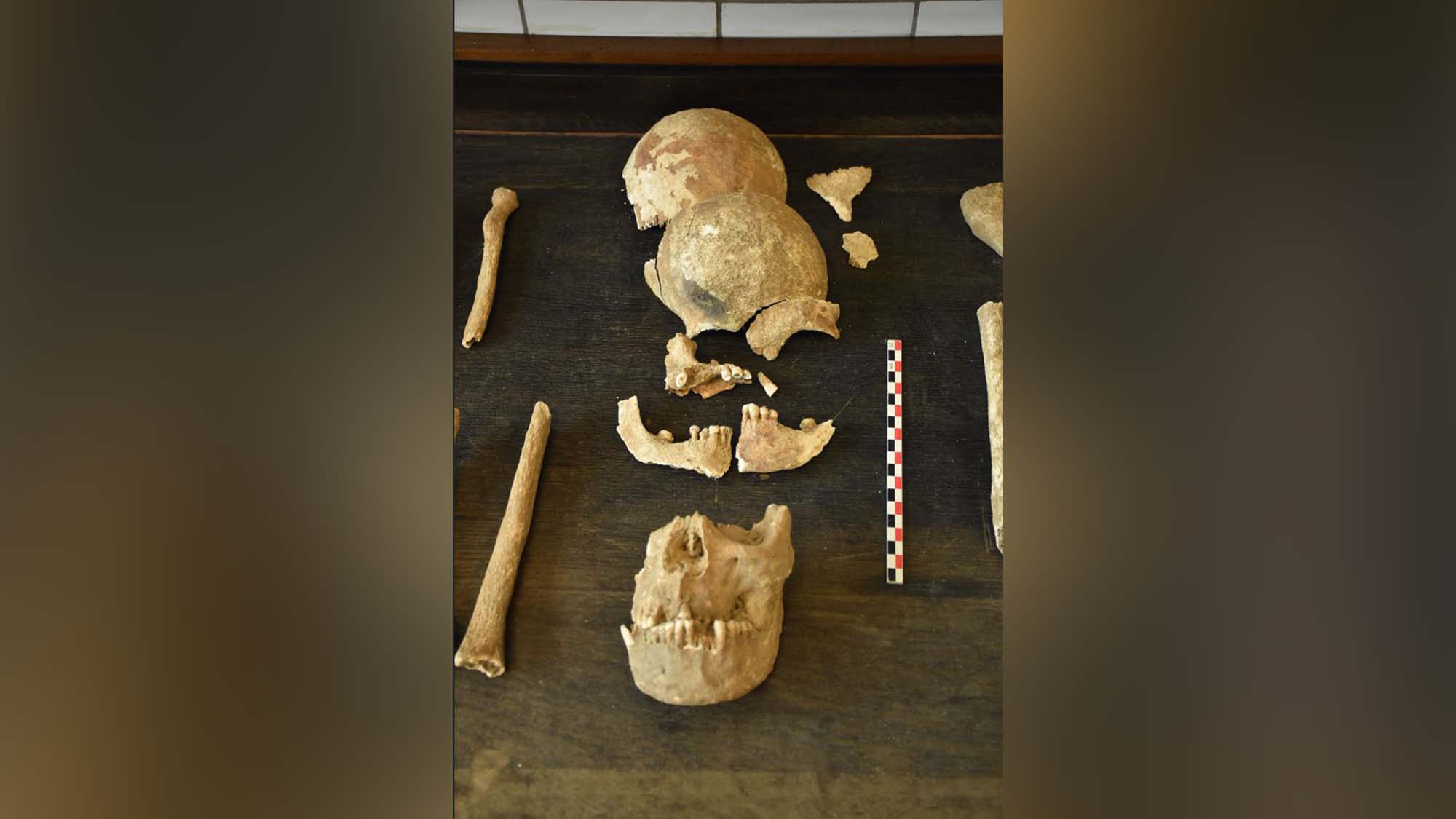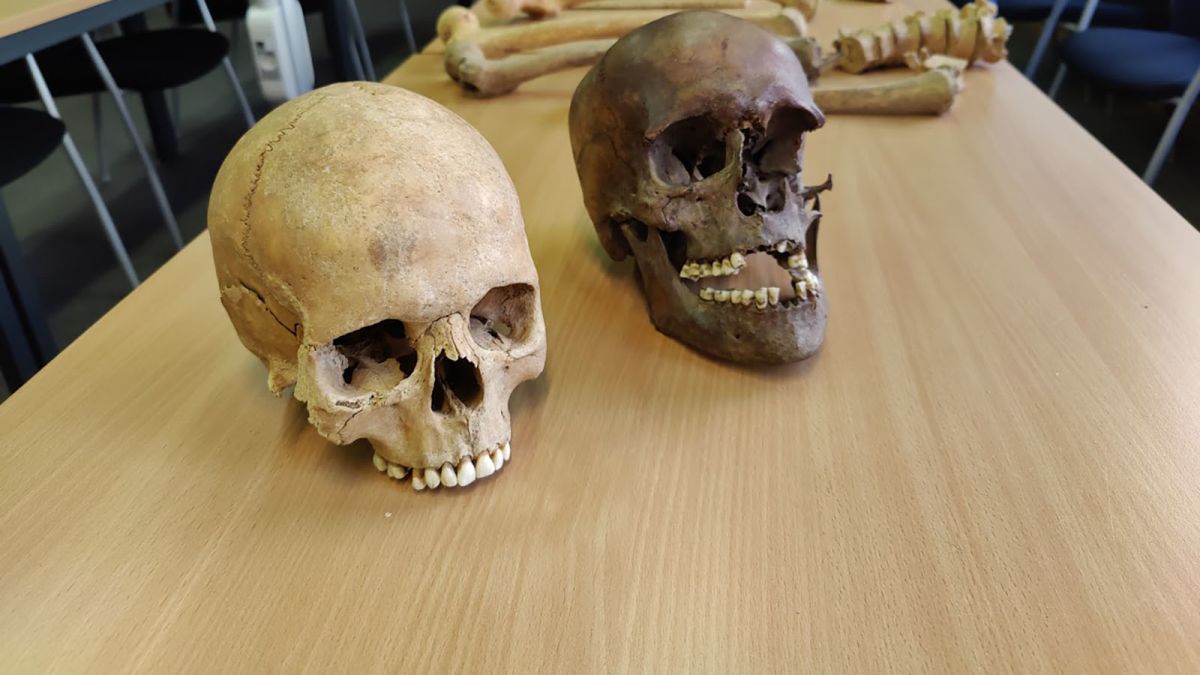Battle Of Waterloo Skeletons Found In The Attic In Belgium
Battle of Waterloo skeletons found in the attic in Belgium. It is said that bones found in an attic in Belgium came from soldiers who died at the Battle of Waterloo. Scientists are currently examining human remains to learn more about the identities of those who have died.
Author:Maxwell CanvasReviewer:Black Crystal Jan 30, 202326 Shares438 Views

Battle of Waterloo skeletons found in the attic in Belgium. It is said that bones found in an attic in Belgium came from soldiers who died at the Battle of Waterloo. Scientists are currently examining human remains to learn more about the identities of those who have died.
Battle Of Waterloo Bodies Found
On June 18, 1815, the battle took place close to Waterloo hamlet, south of Brussels. Here, Napoleon Bonaparte was finally defeated by a combined army of 68,000 people led by the Duke of Wellington and helped by 45,000 Prussians led by Gebhard von Blücher.
Only two bodies have ever been found, despite the fact that more than 10,000 soldiers are thought to have died during the combat. But, now, Battle of Waterloo skeletons found in the attic in Belgium.
According to recent research, many of the soldiers who died at Waterloo were afterward dug up by farmers, who then sold their bones to the sugar industry for use in the industrial process.
When Bernard Wilkin, a senior researcher at the State Archives of Belgium, was giving a discussion about the procedure in Waterloo last November, something amazing occurred. The bones were employed as a form of charcoal in the refining of sugar.
"This old man came to me and said ‘Dr. Wilkin, I have bones of these Prussians in my attic,"the speaker told CNNafter the session.
The man, who asks to remain unnamed, invited Wilkin to his home near the Plancenoit battlefield, where Napoleon's army battled the Prussians, and showed him images of the bones.
A few days later, Wilkin went to see the man at his house and met the remains that the man had been keeping since the 1980s. He went on to say that he at the time ran a "little private museum" and that a friend had found the remains and given them to him for display.
The man said he was a collector of Napoleonic artifacts, but he kept the pieces hidden in his attic because he didn't think it was "ethical" to show them off.
The man, who is alone, said:
He suddenly decided he was old and could pass away in the next years and he was afraid of what would happen to the bones.
When he saw the research we released last summer he thought ‘this guy knows about bones and the Napoleonic wars and he works for the government.’
When he first saw the bones, Wilkin claimed he had a "combination of surprise and emotion." According to him, "One of the skulls is deeply damaged by a sword or a bayonet, so it was a very brutal way of dying."
Initial examinations showed that at least four soldiers' remains were present. Some of the dead may have been Prussian soldiers, based on items like leather and bone buttons that were found nearby the bones and the area where they were found.
According to Wilkin:
“„At the end of the day he gave me all the boxes to study. One of his requests to me was to bury them in a dignified way. He asked me, among other things, to bury them with dignity.- Bernard Wilkin
That is undoubtedly the intention, but for the time being, the remains are undergoing intensive forensic examination in Liège, where Wilkin is located. In an effort to identify the deceased, scientists seek to recover DNA. Additionally, they intend to rebuild one of the skulls' faces.
A German military historian named Rob Schäfer is collaborating with Wilkin to try to uncover more information about the soldiers while also communicating with the German WarGraves Commission.
According to him, "What fascinated me most is the fact that if you look at art from the 19th century, where conflict is depicted, it’s all very interesting and abstract. As a casual observer you might get the impression it wasn’t that bad, but this one particular skull with a massive facial trauma depicts for the first time how violent the age actually was."
According to Schäfer, there is a 20% to 30% probability of getting DNA out of the remains. The next step, according to him, "It’s a long shot but if we’re successful, the next goal is to load the DNA on to databases so people could come forward if they found they were related."

The Battle of Waterloo: Napoleon's Decisive Defeat
Wilkin was in for another surprise after discovering the bones in the attic.
Ha said:
“„When I was visiting, the man told me ‘by the way, I have another friend who has probably four British soldiers that he discovered while (metal) detectoring next to the Lion’s Mound (on the battle field). I was taken aback, this was getting really crazy.- Bernard Wilkin
Wilkin revealed to CNN that Dominique Bosquet, an archaeologist with the Walloon Heritage Agency, later studied those bones. They were then moved to Brussels, where they are being studied by Bosquet and a group from the Natural History Museum and the University of Brussels.
Wilkin and his colleagues think that more people in the area might be hiding secrets because of what they have found.
He continued, "It’s quite clear that we need to talk to the people who have lived there for generations,"he said, adding: "We are pretty sure that more bones need to be given back to the Belgian authorities."
People Also Ask
Where Was Napoleon Defeated?
Napoleon was defeated in the Battle of Waterloo. Napoleon's French Army and a coalition led by the Duke of Wellington and Marshal Blücher engaged in battle at Waterloo on June 18, 1815. It put an end to a conflict that had raged for 23 years, ended French efforts to rule Europe, and permanently undermined Napoleon's imperial power. It was the pivotal fightof its time.
How Many Men Died At Waterloo?
Both the forces that took part in the battle of Waterloo and the village itself suffered tremendous losses. In all, nearly 50,000 troops were killed or wounded, with 23,000 from the Allied army and nearly 25,000 from the French side.
What If Napoleon Won Waterloo?
If Napoleon Bonaparte had won at Waterloo, the French army would have defeated the Russian army, made Poland bigger at Russia's expense in 1814, and ended the Peninsula War.
Conclusion
Battle of Waterloo skeletons was found in the attic in Belgium. It's safe to say that Bernard Wilkin was not prepared for the elderly man's opening gambit when he approached after he had spoken on battlefield bones in his attic.
After ruling most of Europe, Napoleon Bonaparte was finally defeated at the Battle of Waterloo in 1815 by a coalition of troops led by the British Duke of Wellington and Gen. Gebhard von Blücher's Prussian army. The man was found to be keeping unique remains from that battle.

Maxwell Canvas
Author
Maxwell Canvas, a charismatic and fearless crypto evangelist, defies conventions and blazes a trail in the realm of digital currencies. With his unique physique serving as a symbol of resilience, he challenges societal norms and proves that true expertise transcends appearances. Against a backdrop of a blurred and ever-shifting market, Maxwell's work becomes a masterpiece, painting a vivid picture of knowledge and inspiration.
With unwavering passion, Maxwell empowers others to embrace the transformative potential of blockchain technology. His captivating presence and unyielding dedication captivate audiences, turning skepticism into curiosity and igniting a spark of interest in the world of cryptocurrencies. Maxwell Canvas stands as a visionary force, leaving an indelible mark on the crypto landscape, inspiring others to explore decentralized possibilities and embrace a future of innovation and financial empowerment.

Black Crystal
Reviewer
Black Crystal is a captivating writer who finds inspiration in the quiet corners of the street and the mysterious depths beneath bridges. With a penchant for the night, she crafts enchanting tales that explore the uncharted realms of the human experience. Embracing the darkness as her muse, Black Crystal's evocative prose and haunting imagery transport readers into a world where secrets whisper and dreams take shape.
Her writing defies categorization, inviting readers to uncover the magic hidden within the shadows and embrace the enigmatic beauty of her nocturnal narratives. Step into her realm, where the written word dances with ethereal grace, and immerse yourself in the captivating stories she weaves.
Latest Articles
Popular Articles
